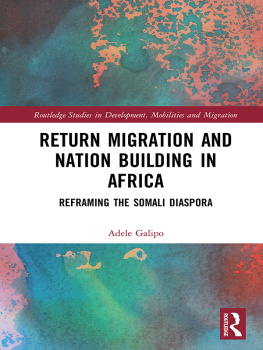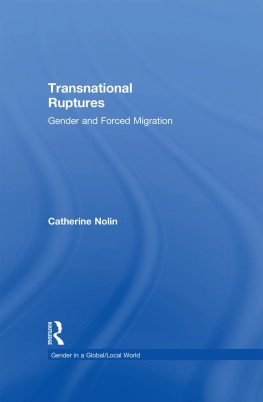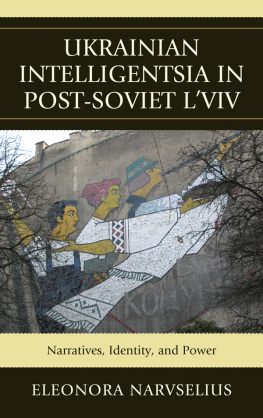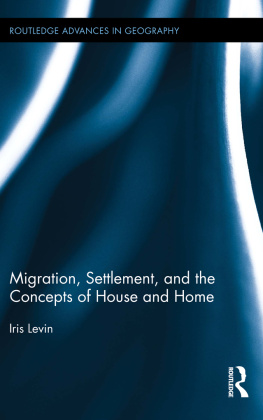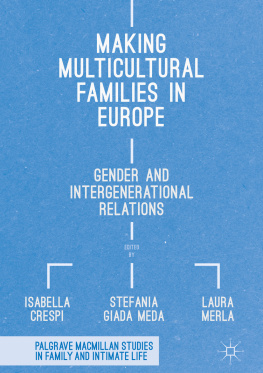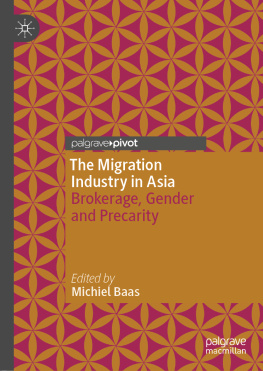
Why would a well-educated, middle-aged Ukrainian woman leave behind a beloved child or grandchild to care for elderly clients in Italy and the U.S. not to return, in some instances, for many years? Taking a fresh approach to a forgotten type of global woman, Solari offers a poignant account of displaced grandmothers and the dreams attached to their hard-earned remittances. This is a highly illuminating and original book.
Arlie Russell Hochschild, author of Strangers in Their Own Land: Anger and Mourning on the American Right
A meticulously researched and beautifully written ethnography about how migration transforms nations from the outside in. Solari tells the compelling story of how Ukranian grandmothers living in exodus in California and in exile in Italy helped create the post-Soviet, newly capitalist Ukraine. Her narrative challenges much of the conventional wisdom about gender, migration, and nations.
Peggy Levitt, author of Artifacts and Allegiances: How Museums Put the Nation and the World on Display
In this brilliantly conceptualized and well-researched book, we learn to see how motherhood is a key foundation for nation-state building in Ukraine. Solaris examination of post-Soviet life for Ukrainian women and their families shows how newly idealized neoliberal versions of the nuclear family are made possible by the migrant labor and sacrifices of a generation of middle-aged and older women, babushka grandmothers who migrate across continents to earn remittances that will sustain nuclear families back home. Balancing original theoretical insights with riveting ethnographic portraits of diverse Ukrainian women, the book offers new insights into the relations between gender, nation, and migrant domestic work.
Pierrette Hondagneu-Sotelo, author of Paradise Transplanted: Migration and the Making of California Gardens
Focusing on case studies of female migrant domestic and care workers from Ukraine to Italy and the U.S., Solari conveys a vivid insight into the issues, exertions, and contradictions of transnational family life in post-socialist times. Solari convincingly combines three thematic areas which otherwise are treated separately: gender relations, migration, and nationalism and shows that an analysis of their interaction is indispensable for the understanding of Ukraines development and current situation. The book is a must read for students and scholars studying gender, migration, and nationalism in the twenty-first century. It deserves to become an integral part of the global migration studies syllabus.
Helma Lutz, author of The New Maids. Transnational Women and the Care Economy
Combining the strengths of personal narratives and sophisticated theory, Cinzia Solari challenges traditional categories in her compelling study of a mass emigration movement out of Ukraine after 1991. These diverse migrations, headed by largely middle-aged women in search of employment opportunities, are creating the building blocks of a new Ukrainian nation-state from the outside in. In her examination of the effects of this process, Solari charts a bold new course for an innovative study of post-socialist societies in transition.
Marian Rubchak, author of New Imaginaries: Youthful Reinvention of Ukraines Cultural Paradigm
On The Shoulders Of Grandmothers
On the Shoulders of Grandmothers is a global ethnography of Ukrainian transnational migration. Gendered migrant subjectivities are a key site for understanding the production of neoliberal capitalism and Ukrainian nation-state building, a fraught process that places Ukraine precariously between Europe and Russia with dramatic implications for the political economy of the region. However, processes of gender and migration that undergird transnational nation-state building require further attention. Solari compares two patterns of Ukrainian migration: the forced exile of middle-aged women, mostly grandmothers, to Italy and the voluntary exodus of families, led by the same cohort of middle-aged women, to the United States. In both receiving sites these migrants are caregivers to the elderly.
Using in-depth interviews and ethnographic data collected in three countries, Solari shows that Ukrainian nation-state building occurs transnationally. She examines the collective practices of migrants who are building the new Ukraine from the outside in and shaping both Italy and the United States as well. The Ukrainian state, in order to fulfill its First World aspirations of joining Europe and distancing itself from all things Soviet, is pursuing a gendered reorganization of family and work structures to achieve a transition from socialism to capitalism. This has created a labor force of migrant grandmothers who carry the new Ukraine on their shoulders. Solari shows that this post-Soviet economic transformation requires a change in the moral order as migrant women struggle to understand how to be good mothers and grandmothers and men join women in attempts to teach their children to be successful and honorable people, now that the social rules have drastically changed.
Looking at individualmigrant women andmen and their families inUkraine allows us to see the production of neoliberal capitalism and new nationalism from the ground up and the outside in for a region that promises to be a flashpoint in our century.
Cinzia D. Solari is Assistant Professor of Sociology at the University of Massachusetts, Boston.
ON THE SHOULDERS OF GRANDMOTHERS
Gender, Migration, and Post-Soviet Nation-State Building
Cinzia D. Solari
First published 2017
by Routledge
711 Third Avenue, New York, NY 10017
and by Routledge
2 Park Square, Milton Park, Abingdon, Oxon OX14 4RN
Routledge is an imprint of the Taylor & Francis Group, an informa business
2018 2018 Cinzia D. Solari
The right of Cinzia D. Solari to be identified as author of this work has been asserted by her in accordance with sections 77 and 78 of the Copyright, Designs and Patents Act 1988.
All rights reserved. No part of this book may be reprinted or reproduced or utilized in any form or by any electronic, mechanical, or other means, now known or hereafter invented, including photocopying and recording, or in any information storage or retrieval system, without permission in writing from the publishers.
Trademark notice: Product or corporate names may be trademarks or registered trademarks, and are used only for identification and explanation without intent to infringe.
Library of Congress Cataloging in Publication Data
A catalog record for this book has been requested
ISBN: 978-1-138-70703-0 (hbk)
ISBN: 978-1-138-70704-7 (pbk)
ISBN: 978-1-315-20152-8 (ebk)
I am often asked how the child of Italian immigrants ends up with a regional focus on the former Soviet Union. It was a long road, and it began in third grade social studies. I was asked to pick a historical figure, pretend they were alive and sitting across the table from me, and write the conversation we would have. I picked Catherine the Great, because I thought it wonderful that a womans last name could be The Great. As I read biography after biography, I attempted to convince Catherine to free the serfs and marveled at the power a woman could possess and the heights she could reach. This began my love affair with the region. After the public schools in our Boston suburb announced that, as an immigrant kid of parents without high school diplomas, I was not college material, my mother convinced Dana Hall School to take me on scholarship the summer before my junior year of high school. I am grateful to Dana Hall, and to my extraordinary mother, for altering the course of my life. I thank the amazing teachers I had at Dana who nurtured my curiosity for the region, even allowing me to write my American history paper on the Cuban missile crisis, if I promised to write it from the U.S. perspective. I owe a special thanks to Helen Burke Montague, my college counselor, who convinced me that not only was I college material, but I was headed to the Ivy League. Thank you also to Peggy Sweeney in college counseling who has cheered me and so many young women on to great things though her kindness and hard work.


